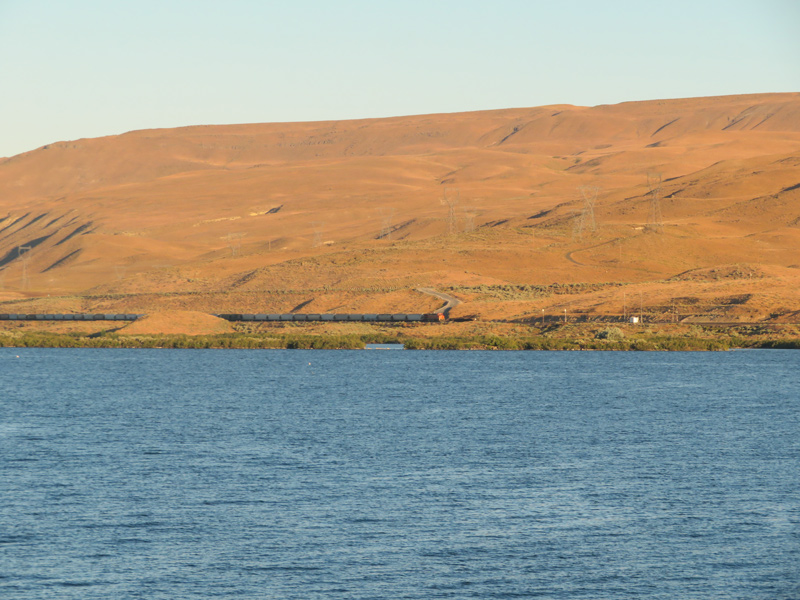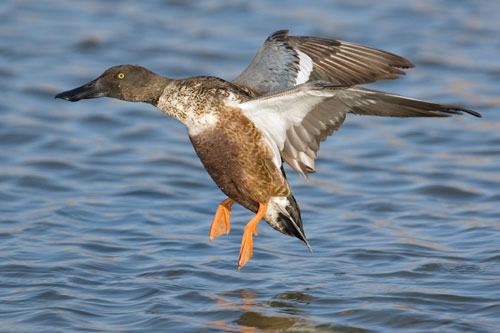During a march of twenty miles, the travelers stop at a large village of Pish-quit-pahs—Yakamas or Umatillas—where none of the residents have seen white men before. Lewis remarks on the abundant bunch grass of the Horse Heaven Hills, Columbia River basalt, and the Northern Shoveler, new to science.
A Big Village
by Yellowstone Public Radio[1]Originally aired weekdays by Yellowstone Public Radio during the Bicentennial observance of 2003-2006. Narrated by Hal Hansen. Scripts by Whit Hansen and Ed Jacobson. Produced by Leni Holliman. © … Continue reading
Large Village of Pish-quit-pahs
This morning we collected our horses and set out at 9 A. M. and proceeded on 11 ms. to the Village of the Pish-quit-pahs of 51 mat lodges where we arrived at 2 P. M. purchased five dogs and some wood from them and took dinner. this village contains about 7 hundred souls.
—William Clark
Beholding “whitemen”
most of those people were in the plains at a distance from the river as we passed down last fall, they had now therefore the gratification of beholding whitemen for the first time. while here they flocked arround us in great numbers tho’ treated us with much rispect. we gave two medals of the small size to their two principal Cheifs
—Meriwether Lewis
Columbia River Basalt
the country we passed through was much as that of yesterday. the river hills are about 250 feet high and generally abrupt and craggey in many places faced with a perpendicular and solid rock. this rock is black and hard.
—Meriwether Lewis
Horse Heaven Hills
leve plains extend themselves from the tops of the river hills to a great distance on either side of the river. the soil is not as fertile as about the falls, tho’ it produces a low grass on which the horses feed very conveniently.
—Meriwether Lewis
Northern shoveler, Anas clypeata
we killed six ducks in the course of the day; one of them was of a speceis which I had never before seen I therefore had the most material parts of it reserved as a specimine, the leggs are yellow and feet webbed as those of the duckandmallard.
—Meriwether Lewis
Weather Diary
State of weather at rise
Wind at rise
State of the weather at 4 P.M. Wind at 4 P.M. River fair N E fair N. E. fallen 2 in. night cold the day warm.
—Meriwether Lewis and William Clark[2]To assist the reader of this web page, the date column is not presented, the “State of the Columbia River” columns have been merged, and some abbreviations have been spelled out.
Experience the Lewis and Clark Trail
The Lewis and Clark Trail Experience—our sister site at lewisandclark.travel—connects the world to people and places on the Lewis and Clark Trail.
Plan a trip related to April 25, 1806:

Notes
| ↑1 | Originally aired weekdays by Yellowstone Public Radio during the Bicentennial observance of 2003-2006. Narrated by Hal Hansen. Scripts by Whit Hansen and Ed Jacobson. Produced by Leni Holliman. © 2003 by Yellowstone Public Radio. |
|---|---|
| ↑2 | To assist the reader of this web page, the date column is not presented, the “State of the Columbia River” columns have been merged, and some abbreviations have been spelled out. |


